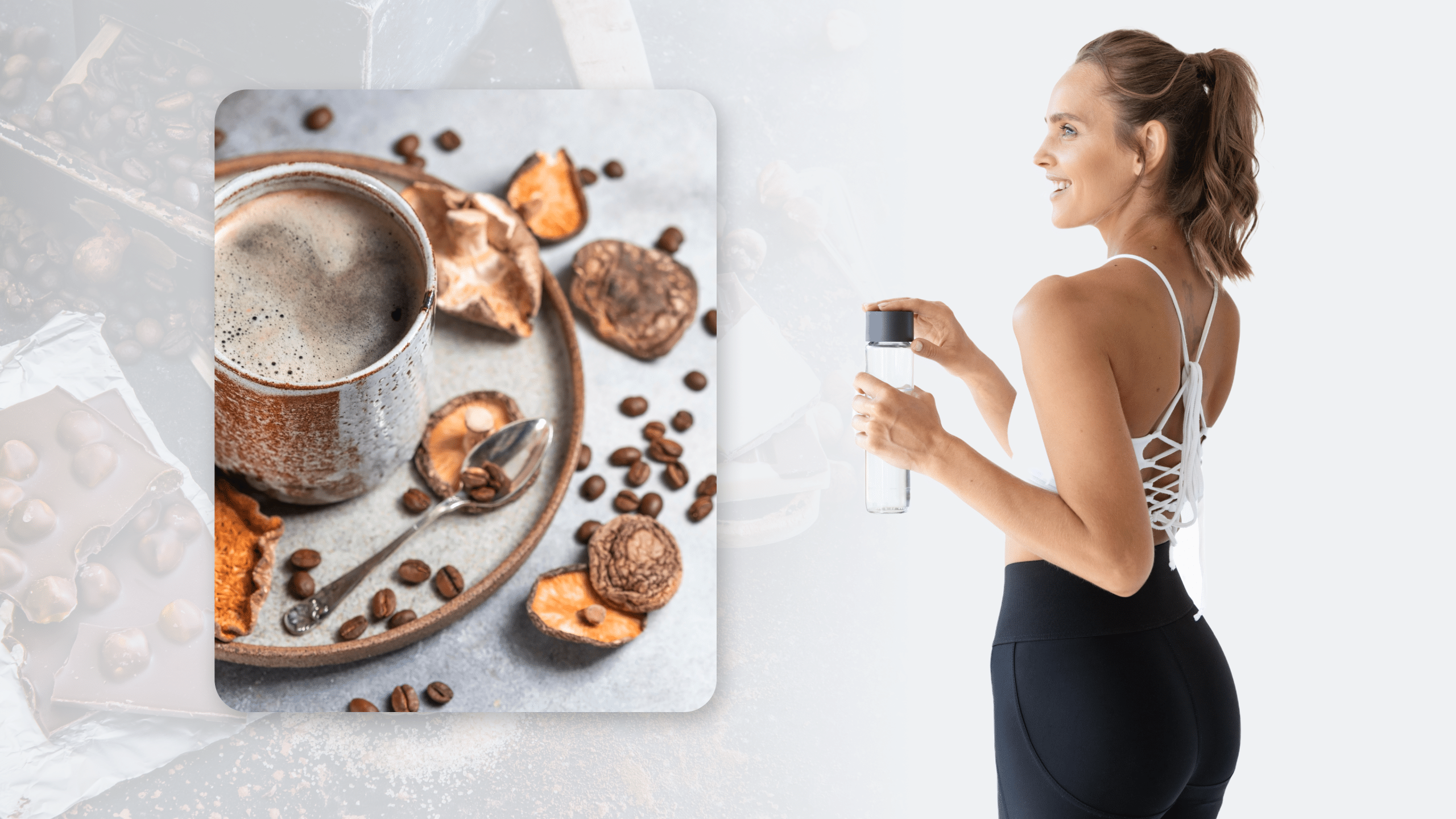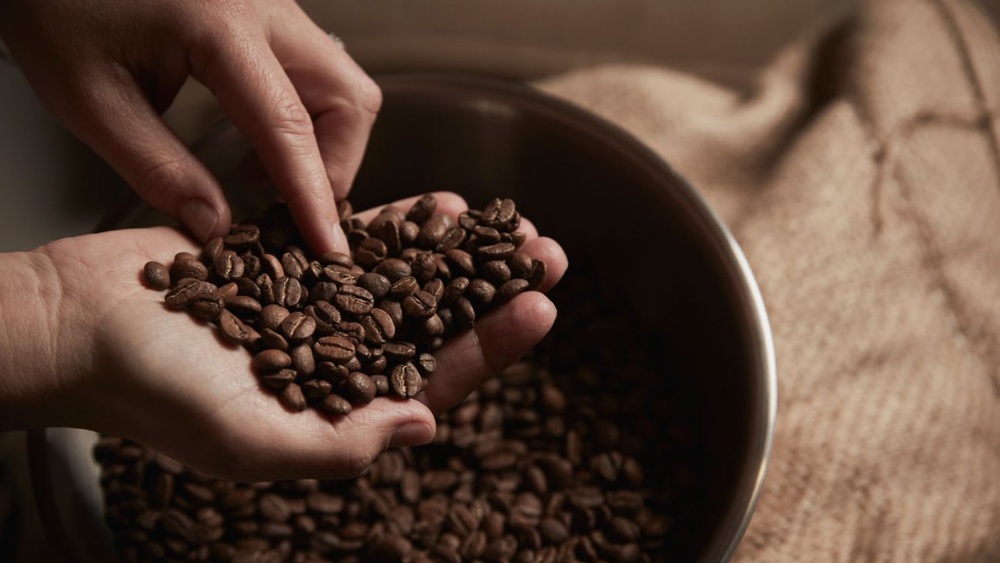Are you curious about whether eating coffee beans can give you that much-needed caffeine kick? You might have heard that nibbling on coffee beans packs a stronger punch than your regular cup of coffee.
But is that true, and how does it actually affect your body? If you want to know how much caffeine you get from eating coffee beans, the benefits, and the possible side effects you should watch out for, keep reading.
This guide will help you understand how coffee beans impact your energy and alertness—and whether eating them is a smart choice for your caffeine fix.

Credit: specialtycoffee.id
Caffeine In Coffee Beans
Coffee beans contain caffeine, a natural stimulant found in the coffee plant. Eating coffee beans delivers caffeine directly into the body. This makes them a quick way to get a caffeine boost. The caffeine content in coffee beans is higher than in brewed coffee. Understanding how much caffeine is in coffee beans helps you manage your intake safely.
Caffeine Concentration Compared To Brewed Coffee
Whole coffee beans have more caffeine per gram than brewed coffee. Brewing extracts caffeine into the liquid but also dilutes it with water. Eating one coffee bean gives a small dose of caffeine. Eating many beans increases caffeine intake quickly. For example, one coffee bean can contain about 6 mg of caffeine. A typical cup of brewed coffee has around 95 mg of caffeine. The caffeine in beans is more concentrated and absorbed faster.
How Caffeine Stimulates The Brain
Caffeine works by blocking adenosine, a brain chemical that makes you tired. Without adenosine signals, your brain feels more alert. This leads to increased focus and reduced tiredness. Caffeine also boosts dopamine, improving mood and energy. The effects start within minutes after eating coffee beans. They last for a few hours depending on your body. Too much caffeine may cause jitters or trouble sleeping.

Credit: betterme.world
Effects Of Eating Coffee Beans
Eating coffee beans delivers caffeine in a direct and potent form. The effects differ from drinking brewed coffee due to higher caffeine concentration. Understanding these effects helps you manage intake and avoid unwanted reactions.
Immediate Energy Boost
Caffeine in coffee beans acts quickly in your body. It blocks signals that cause tiredness, making you feel alert fast. This quick energy lift is stronger than a regular cup of coffee. You may notice increased focus and reduced fatigue soon after eating beans.
Stronger Stimulant Impact
Whole coffee beans contain concentrated caffeine and oils. Eating them gives a stronger stimulant effect than drinking coffee. This intense impact can raise your heart rate and sharpen your senses. It can also make you feel jittery if you eat too many beans.
Possible Side Effects
Too many coffee beans can cause stomach pain and acid reflux. Some people may feel anxious or have trouble sleeping afterward. Digestive discomfort is common because of the beans’ fiber and oils. Eating coffee beans in moderation reduces these risks.
Raw Vs Roasted Coffee Beans
Understanding the difference between raw and roasted coffee beans helps explain their caffeine content and effects. Coffee beans change significantly during roasting. This process affects their taste, texture, and chemical makeup. Eating raw beans is not the same as eating roasted ones.
Caffeine Levels In Raw Beans
Raw coffee beans contain caffeine, but their levels differ from roasted beans. Roasting reduces bean weight by removing water and other compounds. This concentrates caffeine in roasted beans by volume. However, raw beans have slightly less caffeine per gram. The roasting process also changes caffeine’s chemical structure slightly. Eating raw beans delivers caffeine, but the amount varies compared to roasted ones.
Taste And Digestive Impact
Raw coffee beans taste very bitter and have a grassy flavor. They are hard and difficult to chew. Roasted beans taste richer and have a complex flavor profile. The roasting process creates aromatic oils and reduces bitterness. Digesting raw beans can cause stomach discomfort or indigestion. Roasted beans are easier on the stomach but still may cause acid reflux if eaten in excess. Many prefer roasted beans for taste and digestive comfort.
Safety And Moderation
Eating coffee beans provides a strong caffeine boost but safety is important. Consuming them in moderation helps prevent unwanted side effects. Understanding safe intake, personal sensitivity, and risks of too much caffeine can keep you healthy.
Recommended Intake Limits
Experts suggest adults should limit caffeine to 400 mg daily. This equals about 4-5 coffee beans per serving. Staying below this limit reduces the chance of negative effects. Children and pregnant women should consume less caffeine.
Individual Sensitivity To Caffeine
People react differently to caffeine based on genetics and habits. Some feel jittery after a small amount, while others tolerate more. Regular coffee drinkers often develop tolerance, needing more caffeine for the same effect. Know your body and adjust intake accordingly.
Risks Of Overconsumption
Eating too many coffee beans can cause heart palpitations and anxiety. Digestive problems like acid reflux may occur as well. High caffeine can disrupt sleep and increase blood pressure. Avoid large amounts to prevent these risks.
Health Benefits And Risks
Eating coffee beans delivers caffeine in a concentrated form. This can impact your health in different ways. Understanding the benefits and risks helps you decide if eating coffee beans suits you.
The caffeine content is higher than in brewed coffee. This means stronger effects but also possible side effects.
Antioxidant Properties
Coffee beans contain antioxidants that fight harmful free radicals. These antioxidants protect cells and reduce inflammation. Eating beans can increase your antioxidant intake. This supports overall health and may lower disease risk.
Potential Digestive Issues
Eating whole coffee beans can irritate your stomach. The high caffeine and acid levels may cause heartburn or acid reflux. Some people may feel nausea or stomach pain after eating beans. Start with small amounts to see how your body reacts.
Sleep Disturbances
Caffeine blocks the brain chemical that makes you sleepy. Eating coffee beans can disrupt your sleep patterns. This may cause difficulty falling asleep or lighter sleep. Avoid eating beans late in the day to prevent sleep problems.

Credit: www.welovecycling.com
Practical Tips For Consumption
Eating coffee beans offers a strong caffeine boost. The caffeine inside is more concentrated than brewed coffee. This means it can give you quick energy. But eating coffee beans needs care to avoid negative effects. Here are practical tips for safe and effective consumption.
How To Eat Coffee Beans Safely
Start with a small amount to see how your body reacts. Chew beans slowly to avoid stomach upset. Do not eat too many at once. Limit yourself to a few beans per day. Drinking water alongside helps reduce acidity in your stomach. Avoid eating coffee beans late in the day to prevent sleep problems. People with sensitive stomachs should be extra cautious. If you feel jittery or uneasy, stop consuming them.
Alternatives To Eating Beans For Caffeine
Try brewed coffee for a gentler caffeine intake. Tea offers caffeine with less risk of stomach discomfort. Caffeine pills provide controlled doses without the strong taste. Energy drinks can be an option but use them sparingly. Cold brew coffee has smooth caffeine release and less acidity. Consider caffeine gum for quick effects without eating beans. These alternatives may suit you better if whole beans cause issues.
Frequently Asked Questions
How Much Caffeine Do You Get From Eating Coffee Grounds?
Eating coffee grounds delivers about 6-12 mg of caffeine per gram, more concentrated than brewed coffee.
Can Eating Coffee Beans Keep You Awake?
Yes, eating coffee beans keeps you awake by delivering concentrated caffeine, which blocks sleep signals and boosts alertness quickly.
What Happens If You Eat A Raw Coffee Bean?
Eating a raw coffee bean delivers strong caffeine, causing alertness, but may also trigger digestive upset and nausea. Consume sparingly.
What Happens If I Eat 20 Coffee Beans?
Eating 20 coffee beans delivers high caffeine, boosting alertness quickly. It may cause jitters, digestive discomfort, and sleep disturbances. Consume in moderation to avoid side effects like heartburn or increased heart rate. Individual tolerance varies, so effects differ by person.
Conclusion
Eating coffee beans does give you caffeine, often more than brewed coffee. The caffeine acts quickly because beans contain a concentrated form. This can boost alertness but may cause side effects like stomach upset or trouble sleeping. Everyone reacts differently; some feel stronger effects than others.
Moderation is important to avoid unwanted problems. Enjoy coffee beans carefully to balance the benefits and risks.

